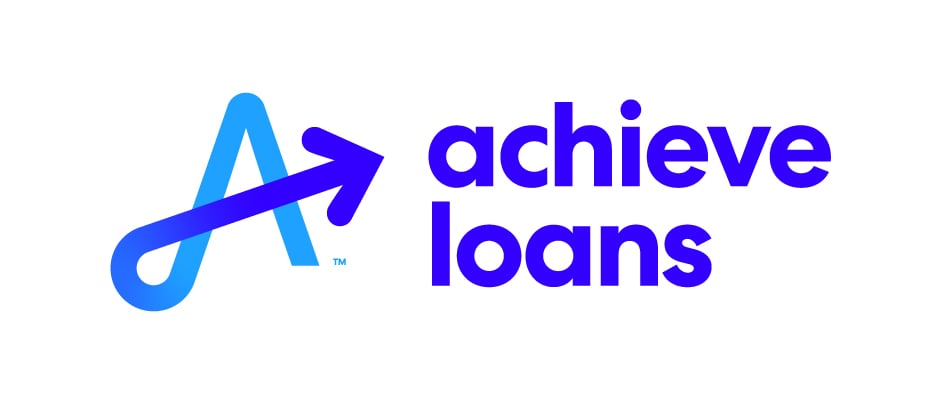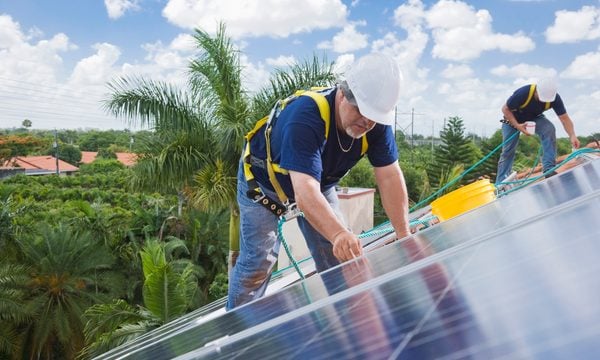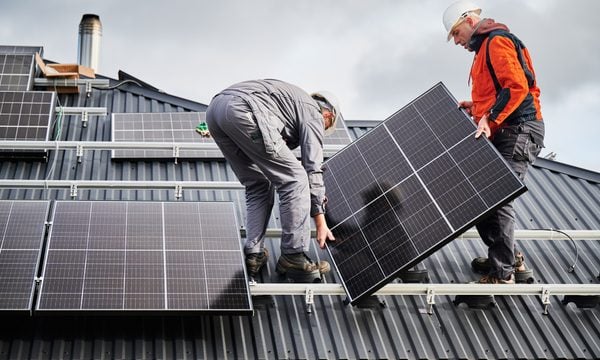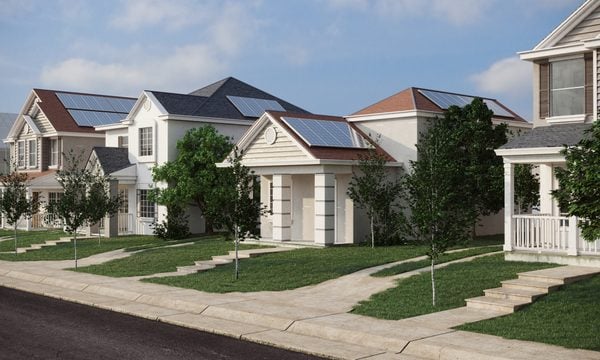Do Solar Panels Increase Home Value in 2026?
Your home could be worth more with solar panels, but how much more depends on location and if you own the panels.
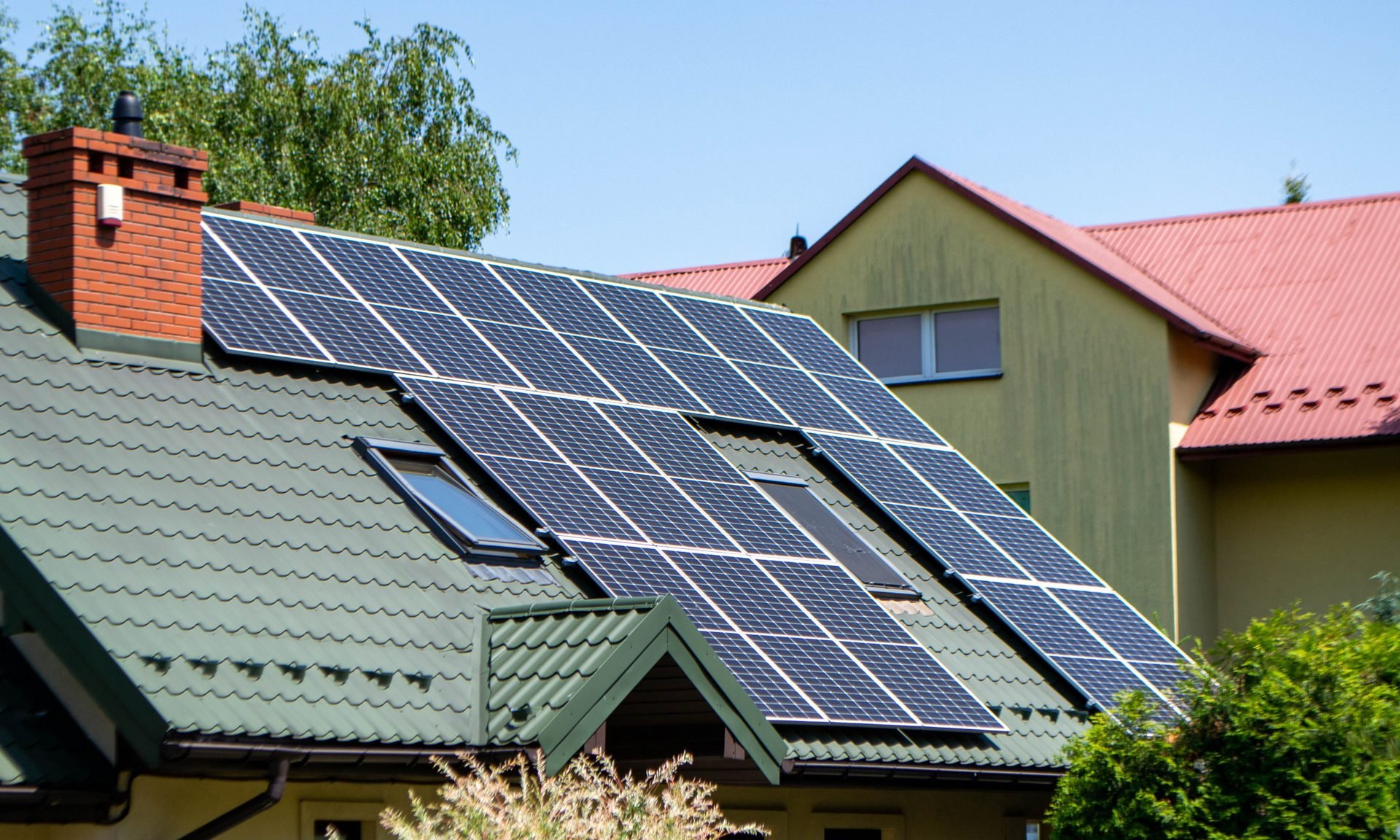
Some or all of the mortgage lenders featured on our site are advertising partners of NerdWallet, but this does not influence our evaluations, lender star ratings or the order in which lenders are listed on the page. Our opinions are our own. Here is a list of our partners.
Solar panels can increase a home’s value by up to 10% — or $1,000 for every $10,000 of property value. The actual increase in your home’s value depends on a few factors, including where you live. And you’ll only see that increase in value if you own the solar panels or shingles.
How much do solar panels increase home value?
As long as you’ve purchased or financed solar panels or shingles instead of leasing them, going solar can add to the value of your house. However, where you live has a significant impact on what your home-value increase will be.
For example, a study by SolarInsure, a solar energy system warranty provider, found that solar installations on single-family residences in major cities in California increased houses’ resale values by 5% to 10% . In comparison, SolarReviews, a website focusing on solar reviews and articles, looked at resale value of homes that sold across the U.S. and found that houses with solar sold for 6.9% more than houses without solar, on average .
However, having a solar energy system installed on your house isn’t a guarantee that your home’s value will increase. The same SolarReviews study showed that homes in Alabama with solar panels sold for 5% less than those without solar systems.
Selling a house with solar panels
Generally, having solar panels or shingles shouldn’t make it harder to sell your house, because they tend to increase a home’s value. But there are a few scenarios where solar panels might make it more difficult to sell your home.
If you financed your solar panels and still owe on the loan, potential buyers might not want to take over the loan. The loan payments will be on top of the mortgage payments, which means the buyers might have to pay more each month than if your house didn’t have solar panels.
If you opt for a solar lease or power purchase agreement (PPA) instead of purchasing the equipment, it may be harder to sell your home. You don’t own the solar panels, so you’re asking the buyer to take over your contract, which they didn’t get to negotiate. Leased solar panels can also come with increasing monthly payments, which means the buyer will pay more per month in the future than you do now. This can make your home less affordable for some buyers.
How much value do solar panels add to a home?
Adding solar panels doesn’t increase everyone’s home value by the same amount. Other factors influence how much your home’s value might rise, such as:
- Age of your solar equipment. If your panels or shingles are nearing the end of their productive years, your home value won’t rise as much as with a system that's fairly new. This is because your solar panels are likely less efficient than they were when they were new and they likely have less time available on their warranty coverage.
- Ownership of panels. Typically, you need to own the solar panels to see an increase in property value. Leasing solar panels or entering into a PPA often doesn’t add to a home’s value.
- Local electric rates. Solar homes in states with higher costs for grid electricity may get a bigger increase in home value.
» MORE: How long do solar panels last?
How much does it cost to install solar panels?
The cost of purchasing a solar system depends on several factors, including:
- System size. The more electricity you need, the more solar panels you’ll have to purchase. Larger systems typically cost more.
- Location. If you live in an area with less sunlight throughout the day, you might need a larger system to make the installation worth the savings. The cost of labor for installation also differs among states, which can increase your final price.
- Type of solar equipment. Many different types of panels, inverters and mounting systems are available, and costs vary depending on the type of equipment and brand you choose.
- Roof pitch. If your roof is steep, this can complicate the installation and increase how much labor is required. Two-story houses and certain roofing materials can increase the cost of installation as well.
» MORE: Do solar panels work at night?
The average cost to purchase and install a residential solar system, before tax incentives or rebates, ranges from about $25,500 to $33,400. The national average cost is just under $30,000, according to data from EnergySage, a solar and home energy product comparison marketplace.
Can I get financing for a solar panel system?
In addition to tax incentives and rebates, there are options available. Many solar installers offer financing, but you may also be able to finance your solar investment through a home equity loan or home equity line of credit (HELOC). These options may have lower interest rates than financing with an installer, future opportunities for refinancing and possible tax benefits.
Home equity loans and HELOCs are ways to borrow against the value of your home, converting equity into cash. With a home equity loan, you receive a lump-sum payment and then pay it back at a fixed interest rate over an agreed period of time, typically from five to 30 years. HELOCs are more akin to a credit card, something you use as needed. You’ll usually have 10 years to draw from the line of credit, during which time you only have to pay interest, and after that you pay both the principal and interest. HELOC interest rates typically are variable, meaning your monthly payment could rise or fall over time. And with each of these options, you're using your home as collateral.
Advertisement
Min. credit score 600 | Min. credit score 600 |
Min. down payment N/A | Min. down payment N/A |
Another option is a solar loan. Many banks, credit unions and online lenders offer these to fund solar panels and installation, with amounts typically from $1,000 to $100,000, and annual percentage rates ranging from 6% to 36%. They function like a personal loan: you receive a lump sum and repay it in equal monthly installments over a set period, typically two to seven years. And unlike with home equity financing, there is no collateral required for a solar loan. This means your home or solar panels aren’t at risk if you miss payments, but you may have to pay late fees.
So, yes, you likely can get financing. If you go this route, compare interest rates, terms and fees with any financing package that a solar provider may offer you to ensure you get the best deal.
Frequently Asked Questions
Does solar actually increase home value?
Yes, research shows that solar panels can increase a home’s resale value, but if it does and by how much depends on several factors, such as age of the panels, whether they're owned, and local electric rates.
Is it harder to sell a house with solar panels?
It might be harder to sell a house with solar panels if you lease the panels or signed up for a power purchase agreement (PPA), still owe on your solar loan or have older equipment that doesn’t save much money on your electricity bill.
Is adding solar panels to your house worth it?
Several factors can determine if adding solar panels to your house is worth the cost. Things like your financial circumstances, your location, whether you plan to purchase or lease panels, if your state offers incentives and if you plan to sell your house soon can all play a part in if you’ll see a return on your investment in solar panels.
Article sources
NerdWallet writers are subject matter authorities who use primary,
trustworthy sources to inform their work, including peer-reviewed
studies, government websites, academic research and interviews with
industry experts. All content is fact-checked for accuracy, timeliness
and relevance. You can learn more about NerdWallet's high
standards for journalism by reading our
editorial guidelines.
- 1. SolarInsure. Solar Panels & Home Values: 2025 Research Analysis. Accessed Aug 13, 2025.
- 2. SolarReviews.com. Homes with Solar Sell for 6.9% More [2025 Zillow Data Study]. Accessed Aug 13, 2025.
More like this
Related articles
AD
Save On Solar Without the Middleman
Free Instant Quote
on Project Solar's website

AD

Save On Solar Without the Middleman
- $750 OFF install with NerdWallet;
- SolarCare™: top-tier warranty & 25-year production guarantee;
- No sales commissions mean premium equipment & tech at up to half the price.
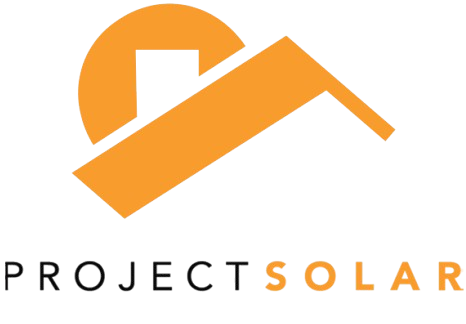
Free Instant Quote
on Project Solar's website





